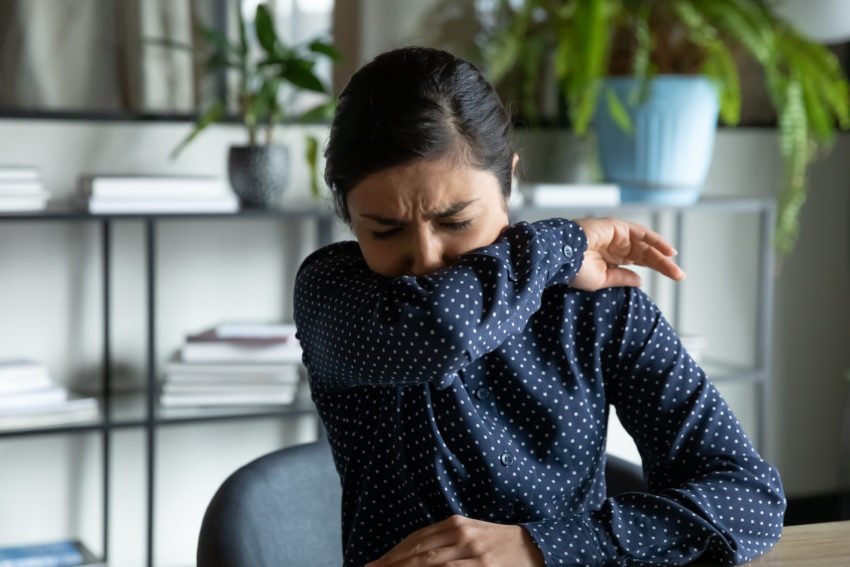Submitted by Tatjana Walker, MPH, RN, RDN, CDCES, CPH
High winds and cold temperatures tonight are expected to trigger massive release of mountain cedar pollen. Many people will notice symptoms on Christmas Eve and over the holidays. Adults and children who are allergic may experience itchy eyes, nose and throat, and they may have a cough or a runny nose.
Social distancing is more important than ever. People who feel sick, even if they think it is mountain cedar allergy, should stay home.
The male mountain cedar tree (which is actually a juniper) releases so much pollen it can appear like smoke when the wind blows. Many locals recognize that their “cedar fever” or allergies start up in late November or just before Christmas and last until March. People who are relatively new to San Antonio may not recognize these symptoms, and think they have a cold or even COVID-19.
“It can be tough to tell the difference. We want people to be safe. I would hate for someone to assume they just have allergies and then expose a loved one to COVID-19,” said Claudia Miller, MD, MS, allergist-immunologist and professor emeritus in the UT Health San Antonio Department of Family and Community Medicine. “People with symptoms should be in contact with their doctor and may need COVID-19 testing. Their doctor may advise them to try antihistamines or prescribe something stronger if necessary.”
Dr. Miller is concerned that allergic symptoms like rubbing eyes, coughing and sneezing will further spread COVID-19. These symptoms can also make it difficult to wear a well-fitting mask. Very young children may be unable to cover their coughs or sneezes. Parents can teach children and set a good example for them. Staying home this holiday sets the best example and protects our families, community, and overstressed hospitals and first responders. Staying indoors may also help reduce exposure to pollen and improve allergic symptoms. It’s more important than ever to quit smoking or vaping, and to never smoke indoors.
# # #
The University of Texas Health Science Center at San Antonio, also referred to as UT Health San Antonio, is one of the country’s leading health sciences universities and is designated as a Hispanic-Serving Institution by the U.S. Department of Education. With missions of teaching, research, patient care and community engagement, its schools of medicine, nursing, dentistry, health professions and graduate biomedical sciences have graduated more than 37,000 alumni who are leading change, advancing their fields, and renewing hope for patients and their families throughout South Texas and the world. To learn about the many ways “We make lives better®,” visit www.uthscsa.edu.
Stay connected with The University of Texas Health Science Center at San Antonio on Facebook, Twitter, LinkedIn, Instagram and YouTube.
To see how we are battling COVID-19, read inspiring stories on Impact.


